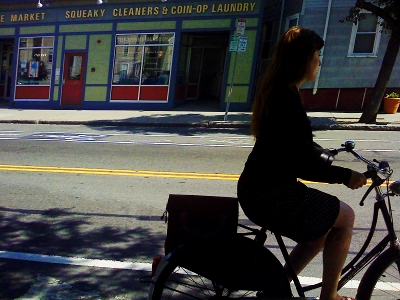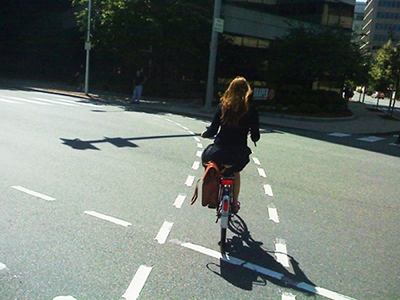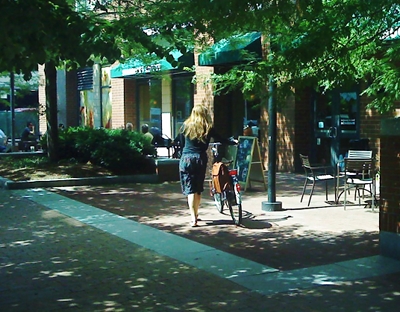We cannot always articulate what we like or don't like about cycling in our city. But taking our favourite route as a starting point and examining what is so great about it, can lead us to discover our preferences - as well as our anxieties - when it comes to transportation cycling.
The pictures here document a busy street around the corner from my home that stretches through several neighborhoods along the border of Somerville and Cambridge, winds into MIT territory, and then proceeds directly over the Longfellow Bridge across the Charles River, into the center of Boston. It is not a traffic-calmed side-street, but a crowded major road, and it is not especially attractive. And yet, it is my favourite cycling route in the area. It goes on forever, gives me easy access to Boston, and does not make me deal with ambiguous traffic situations.
When cycling in the city, I think it is ambiguity that causes me the most anxiety: left turns from side streets onto busy roads; bicycle lanes that suddenly end; commuter trails that force the cyclist to cross busy intersections without streetlights; roundabouts and stop signs where questions arise about the right of way and I never know whether the car is really letting me go... I could go on. But on this route, none of those things happen. I am basically cycling down an endless avenue, and as long as I abide by street lights, the road will take me where I need to go. This not only eliminates ambiguities, but appeals to my love of the "endless open road." I like knowing that I can get on this road around the corner from my house and end up in downtown Boston, stress-free.
You have probably noticed that this route has a bike lane most of the way. But that is not what I like about it - at least not the lane alone. Unlike most streets with bike lanes in my area, this one is consistent and logical. At no point does it suddenly end in a dangerous spot, and at no point does it place you in the door zone of parked cars. It even takes you through a curve in the road with a left-turn lane specifically for bikes. The bike lane here functions as a bike lane should in my view - a suggestive marking, similar to a bus lane, that signifies a space on the road where bicycles have priority over motor vehicles. It goes without saying that you must still be vigilant of things like occasional double-parked vehicles, and vehicles making right turns at intersections. But overall, the lane - and specifically its consistency - has the effect of legitimising the presence of bicycle traffic. There are quite a few bicycles passing through, and it is just another lane of traffic. Normal. I do not always feel this way about bike lanes, but on this particular route it seems to me that they really do have this positive effect.
When a cycling route feels comfortable and convenient... well, that is pretty much how it ought to be. Cycling for transportation in the city should not feel as if you are going into battle every day; it should feel like the city you live in is open and accessible to you. This is my favourite route, because it does just that.






0 comments:
Post a Comment